[box_dark]Obituary
 PHILLIPS, Dexter. 42, London.
PHILLIPS, Dexter. 42, London.
Died well before his time where he lay today, in St George’s Church, by an infection of the plague due to bite. He was preceded in death by his entire family. Dexter was a diligent worker, and was revered for his leadership at London’s finest restaurants. He survived longer than any other courier since the plague, forcing his way out of certain death time and again. His life’s dream was to make a difference for his fellow man, and with his determination he did just that.
[/box_dark]
I never knew Dexter before the plague hit. But after spending several hours with the former head waiter surviving the seemingly insurmountable, he and I formed an incredible connection. And, when he met his untimely death, I lost a friend.
Ubisoft’s ZombiU, a first-person zombie shooter set in post-outbreak London, is as much a relationship simulator as it is a survival horror game. The playable characters, randomly generated combinations of body features and names, rotate in as the previous ones die. As characters die, they become part of the infected horde and the gear that they had encompassed is attached to their being until the player hunts them down and regains it. Because death is permanent in the game, it’s very easy for the characters to become throwaway pawns geared towards tactically picking off zombies one by one.
The game is brilliant in that respect. Death, by virtue of being “permanent,” is used as a tool instead of a hindrance. The design of the game reminds me of why Super Mario Bros worked so well: Mario moves right, jumps over the goomba to avoid it, hits the block and the mushroom comes to him. In ZombiU the first thing I learn is how to die, which leads me to learn why I need to survive longer, manage my gear, avoid conflict whenever possible, and how to prepare. It expects me to die, and die often. This is a zombie apocalypse preparedness guide, in a way.
I learn to hoard my weapons in the game’s safe houses, taking only one or two at a time in case I am ambushed. Because my backpack is initially small, I’m limited in what I can carry and because ammo and items can often be rare, I learn to become creative with the tools I have. This includes throwing distracting flares near open fires so that zombies would succumb to flames, or placing mines near doorways as a sort of alarm and safety system while I raid safes. In ZombiU the infected are more powerful than zombies in other games, often taking 5 or 6 whacks from a cricket bat or bullets from a shotgun before going down. Here, single zombies can often put up long fights, being slightly too powerful by design. I’ve come to realize that avoiding the infected whenever possible instead of engaging them in battle is a better option.
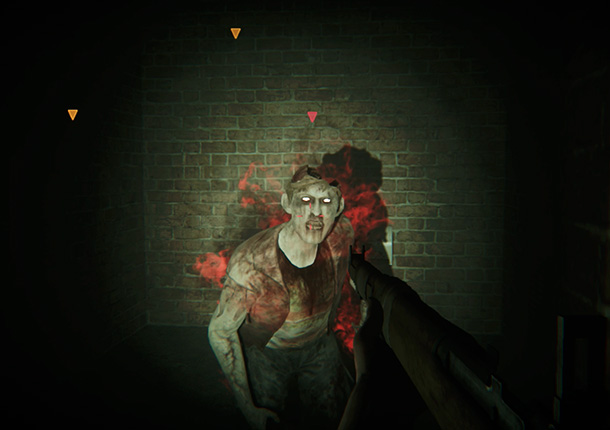
When a character somehow lasts longer than expected — say three hours, four hours, five — a bond begins to form. My actions within the game’s often anxiety-creating situations built up my connection to Dexter. I became invested in him and his survival. When he was attacked by surprise it was because of my failure to properly scout an area. When he succeeded it was because of my hands. I knew that yes, if he died then I could just as easily pick up with another new character. But, I had several hours poured into him. I had helped him narrowly escape an underground sewer infested with the floating undead. I rescued him when I managed to board up a door behind me just as a wave of zombies poured up the stairwell. I began to need him more than he needed me. Playing the game late in the evenings with the lights turned down meant that Dexter was the only other “living” person in the room with me. If there were undead in the area, I at least had him to pick them off. He was mostly faceless, but our experiences together painted a picture of a man who was determined to make the best of his situation to survive.
It is this situational experience that makes the game so compelling. Sure, there are puzzles to be solved and zombies to be killed, but the aspect of survival at any cost is the true meat. Like the early parts of the film 28 Days Later and the opening issues of The Walking Dead, this is the story of a person discovering a horrific world alone.
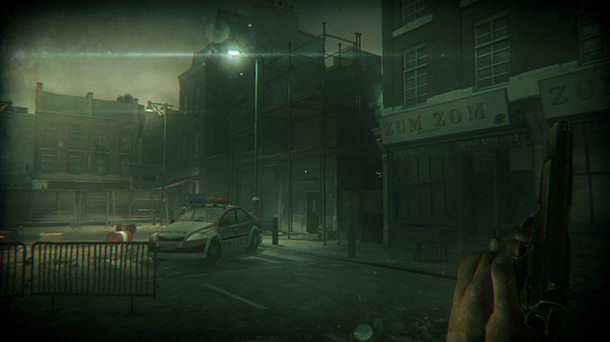
It can be argued that the game’s main character is actually the Prepper, a man only known by a consistent voice that guides and asks the survivors to perform specific tasks. At first he seems to want to help me, but as time moves on he becomes more devious. His intentions are never clear, and he is quick to brush off the death of a survivor in favor of any other new one that arrives. I secretly feel like I want to overthrow him as time goes on. The game’s jarring flaw comes when a survivor dies and respawn back at the main safe house, with the Prepper outlining why he or she screwed up the mission. However, the game neglects to treat my survivor like a new character, instead asking me to get back out there and complete the task I was last on.
ZombiU’s three “acts” unfold fairly well, though by the third one the campiness of a somewhat forced sci-fi theme becomes apparent. It’s not zombies in space or anything like that, but it reduces some of the dark loneliness and realism of the first few hours in favor of a slightly more traditional supernatural take. It moves from a theme of “just survive” to a theme of “I need to fix this mess, but survive along the way”.
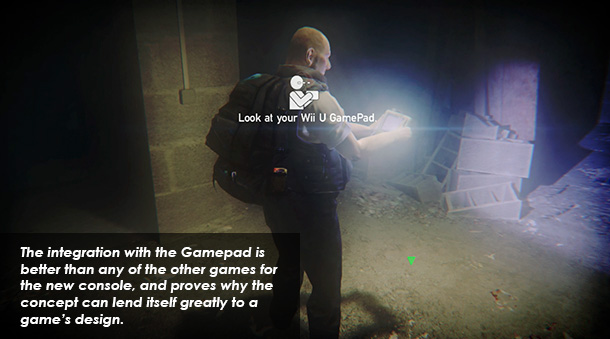
Ubisoft developed ZombiU to take advantage of the WiiU hardware, and they succeeded fully. The integration with the Gamepad is better than any of the other games for the new console, and proves why the concept can lend itself greatly to a game’s design. I don’t think ZombiU or a similar experience can maintain the level of tension if it had been developed for a more standard interface. The best example of why it is so effective can probably be displayed in a specific scene where I am meant to find the paperwork of a doctor who had been studying the disease. A quick scan of the doctor’s office — made by holding up the Gamepad like a viewfinder to look for items — shows no signs of motion and reveals a safe in the back wall. As I approach the safe, the keypad appears on the Gamepad’s screen and my television shows the room behind me. Unfortunately, without the correct passcode in hand I trip an alarm and the infected pour in. I turn around with just barely enough time to push one away, able to escape and find the code later.
Tension. Incredible, panic-inducing tension. ZombiU is survival horror, not an FPS shooting spree. It’s slow and methodical; it’s deliberate; it raises my heartbeat (especially on the more difficult Survival modes).
The game is littered with neat little elements, too, resulting from the online MiiVerse integration. Players can leave graffiti on the walls and floors for each other, indicating secret areas, item stashes, or zombies ahead. The developers leave notes for players, telling us when special in-game events are scheduled to take place or who is at the top of the leaderboards this week. Whenever we die, our undead survivors appear not only in our games but in the games of our friends and others who are online at the time. In fact, if it wasn’t for one of my friends’ shambling corpses arriving during a crucial time (sorry, Godfree!) I would have been out of ammo and med packs. It’s all novel, and I’m hopeful that other developers take note of the ideas and utilize them as well.
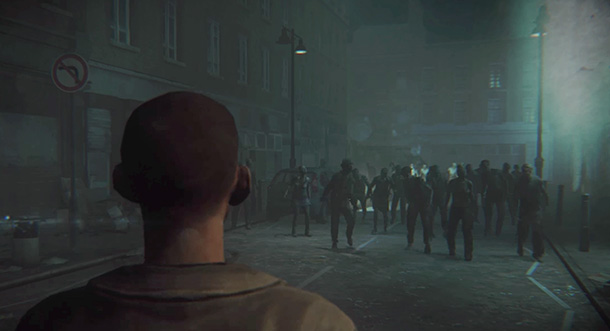
ZombiU is as close to a “real life” zombie apocalypse as there perhaps has ever been in action games, reflecting what it would actually be like to try and survive an outbreak — permadeath and all, for better or worse. It takes the tension and fear from the first Resident Evil games and mixes in a mission-based structure. Its opening scene, in which we find ourselves without any weapon, surrounded by zombies and forced to run for our lives, best exemplifies the survivalist theme throughout the rest of the game. It’s an enjoyable adventure through the apocalypse, and one that is not only the best WiiU game to date but one of the most unique experiences of the last few years.
Sadly my friend Dexter will never see the results of his actions. He was the hero that made it through the majority of the experience, the person I bonded with, and the one that left me feeling deflated and crushed when I ultimately let him down.
Dexter Phillips, you’ll never be forgotten. RIP.
This review is based on a retail copy of the game purchased by the reviewer.

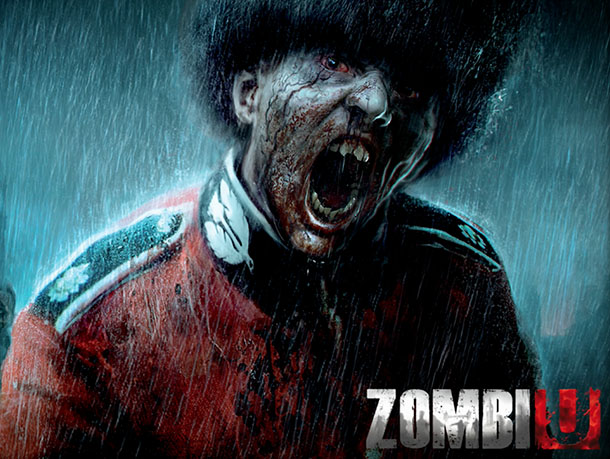
No Comments